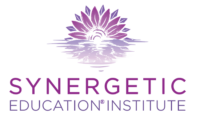Advanced Level Trainings:
Part 1: Working From a Developmental Perspective with Students and Adults – 6 hours of content
Using a developmental framework, educators will learn to determine how best to support teachers in understanding how to work with their own, and their students’, states of arousal. They will learn how to support other adults through teaching concepts and through being an external regulator. Educators will identify ways to support others in understanding their vital role in social-emotional learning from an inclusive and trauma-informed perspective. Additionally, the focus will be on co-regulating highly dysregulated students as participants deepen their skills in being an external regulator.
Learning Objectives:
- Participants will learn to identify where an educator might be along a developmental continuum so they can more effectively support and collaborate with them.
- Participants will learn ways to discuss and teach concepts to other educators to support building capacity at their building(s).
- Participants will analyze the challenges and/or barriers they are facing in their building(s) and learn to better understand how to work with them.
- Participants will practice being an external regulator in moments of high intensity and dysregulation.
Part 2: Challenges in Practice and Theory – 3-6 hours of content
Dealing with intensity throughout the day brings with it challenges and big emotions. This training is a re-grounding in theory and practice as we examine the challenges participants are experiencing. Educators will learn how to make adaptations that work in their settings. This class combines teaching, coaching, and collaborative problem-solving as we work together to co-create a path forward that is authentic and congruent for each educator.
Learning Objectives:
- Participants will identify what is being triggered in them by the challenges in their environments.
- Participants will identify where they are along the developmental continuum as a way to guide their on-going learning.
- Participants will identify adaptations that are authentic and congruent for them so they can make this work their own.

